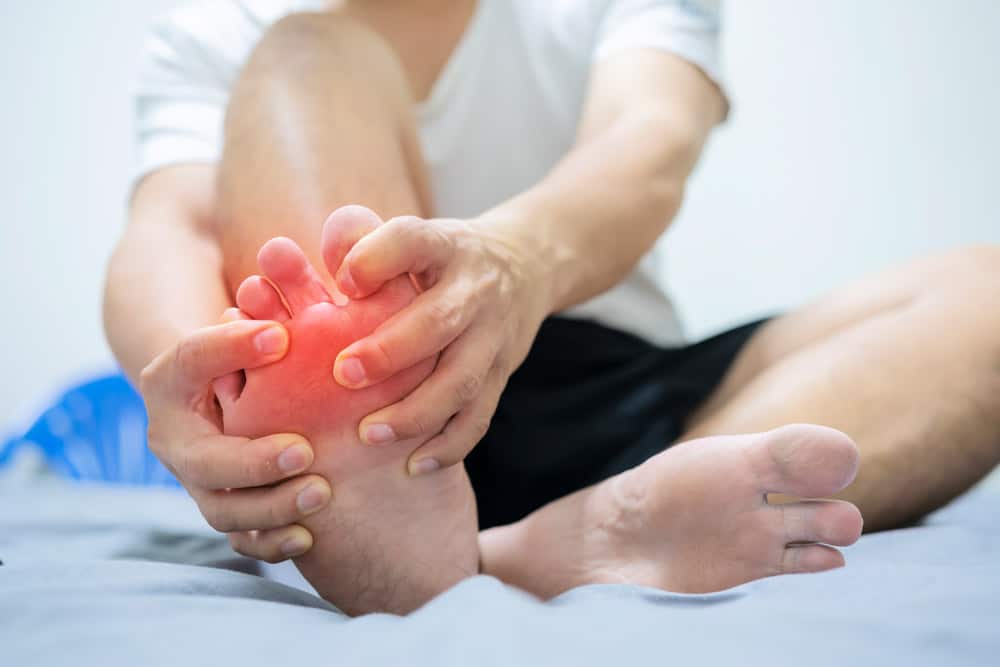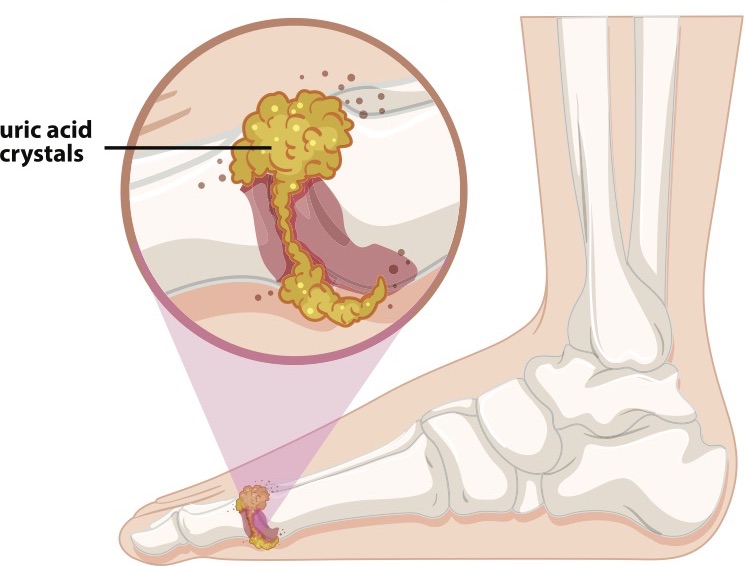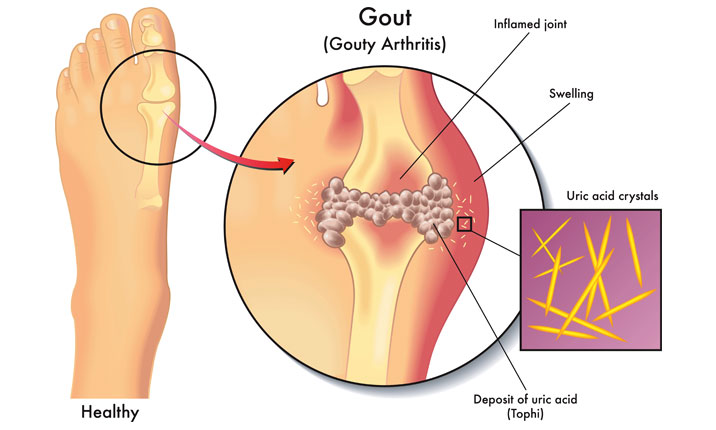When someone feels pain in joints like the knee, wrist, foot, ankle, or elbow is suffering from gout. We have professionals in gout and much other pain and recommend you perfect curation.
All You Need to Know About Gout & Gout Cause
Gout is a type of arthritis that refers to a wide range of joint problems and joint discomfort. Some kinds of arthritis induce joint inflammation, while others do not. Gout causes inflammation and pain in one or more joints. Typically, the big toe is damaged. It can, however, be detected in other joints, including the elbow, wrist, hand, ankle, and foot.


Who Suffers by Gout?
Gout can affect anyone. Men often have it earlier than women. It usually affects women after menopause. Men may be three times more prone to develop it than women because they have had higher uric acid levels for most of their lives. Women’s uric acid levels reach this level after menopause.
Gout patients are more likely to develop the following conditions:
• Obesity or being obese.
• Heart failure accompanied by congestive symptoms.
• Diabetes complications.
• Hypertension (high blood pressure) (high blood pressure).
• Kidney dysfunction.
Gout is also more likely to strike if you:
• Eat a high-protein diet.
SYMPTOMS AND CAUSES
What does Gout cause?
The body creates uric acid when purine-containing meals and beverages are broken down. When you urinate, this standard waste product goes through your kidneys and out of your body.
The body occasionally produces an excessive amount of uric acid. Or the kidneys aren’t up to the task. In cases of hyperuricemia, or high amounts of uric acid in the body, uric acid crystals may form in the joints. Sharp, needlelike crystals cause gout. On the other hand, many people with high uric acid levels never develop gout.


What Are the Symptoms of Gout?
There are many gout symptoms like intense pain, redness, stiffness, swelling, tenderness, fire in the joint, and even light touch to the feet. Gout attacks and these symptoms badly affect joints. Gout is a sudden attack in joints like the foot, knee, ankle, wrist, elbow, and more.
How Often Do Gout Attacks Happen?
Gout attacks often happen suddenly, and these may attack twice a week; if this is not diagnosed frequently and adequately, gout attacks might repeatedly affect different joints.
How to Diagnosis and Test Gout Attacks
How Does a Doctor Diagnose Gout?
You need a doctor to diagnose gout. Your PCP may send you to a rheumatologist, a doctor specializing in gout and other kinds of arthritis. Below is a procedure of how a physician diagnoses gout.
When it comes to whether the patient is suffering from gout or not, the process physician asks the patient. The patient tells the symptoms, like they are feeling pain, stiffness, redness, and more.
Medical Experts Consider a Variety of Factors When Diagnosing Gout
• Symptoms: You will be asked to describe your symptoms and the frequency and duration with which they occur.
• Physical examination: Your doctor will look for signs of warmth, redness, and swelling in the affected joint(s).
• Blood work: A test can detect the amount of uric acid in your blood.
• Imaging tests: X-rays, ultrasounds, or magnetic resonance imaging (MRI) may be performed to get images of the affected joint or joints.• Aspiration: A needle could be used by the medical practitioner to extract fluid from the joint. A team member can use a microscope to look for uric acid crystals (confirming gout) or another problem (such as bacteria with infection or other types of crystal).
How to Make an Appointment with Wyoming Medical Care?
If you are suffering from gout attacks twice a week and your health is decreasing daily, you do not need to worry about gut attacks. We have a specialized physician who will help you overcome this issue, and you only have to call us and get a free estimation today.
